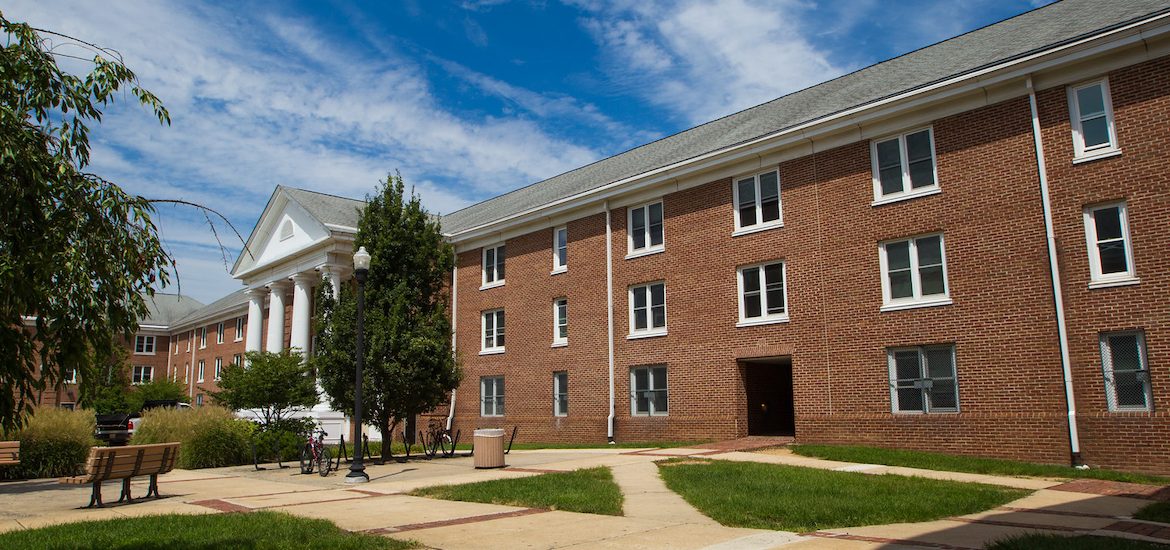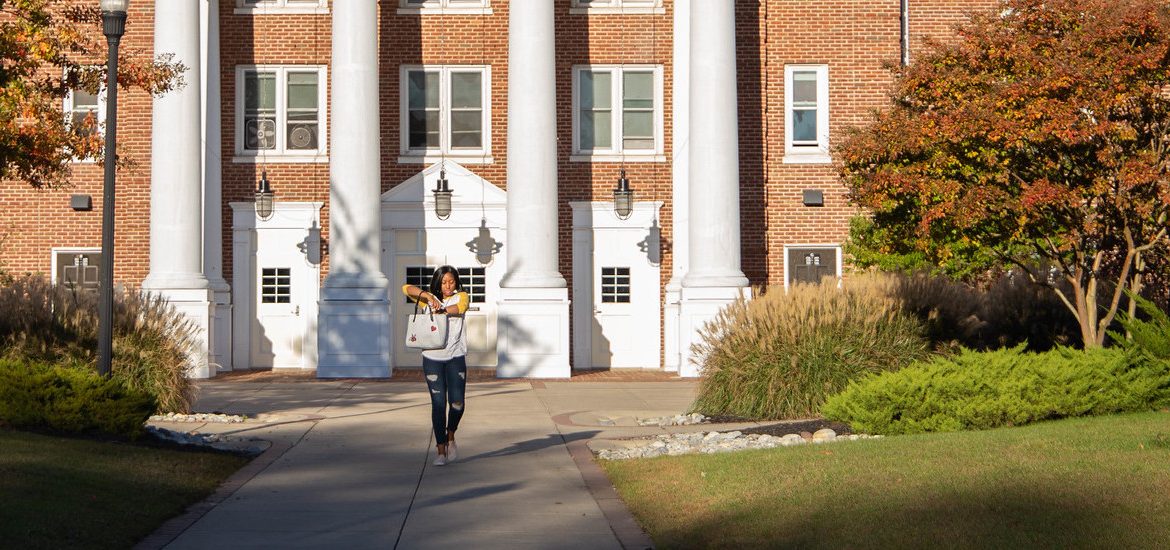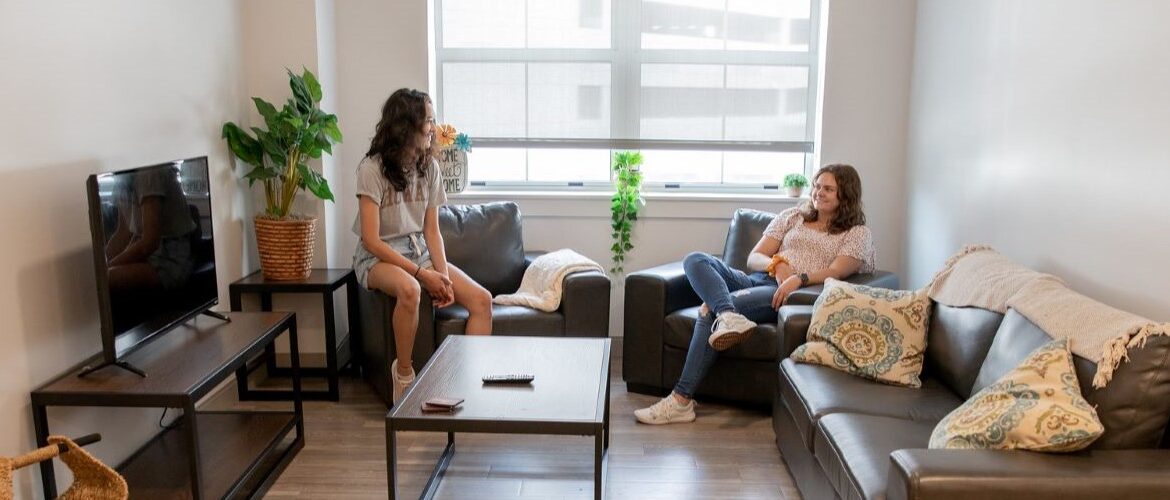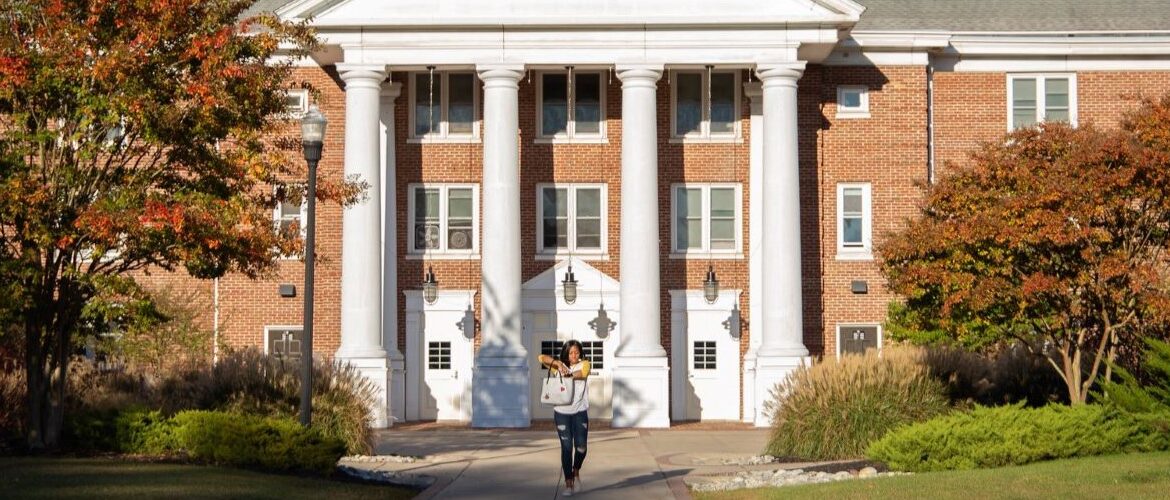Today, we speak with senior Biomedical Engineering major Katie Driscoll of Durango, Colorado. She holds minors in History, Chemistry and Arabic Studies and is part of the Honors College. Here, Katie shares insights on her major, including the research work she’s been part of since her first year here at Rowan, and talks about the importance of getting involved on campus.
What made you come all the way here to New Jersey?
I just felt really at home when I visited the Biomedical Engineering program. It felt like everyone was super excited about Rowan’s potential for growth. And everyone was really happy to be here, students and faculty alike. So it really kind of felt like a welcoming place.
Why Biomedical Engineering?
I decided to major in Biomedical Engineering because it is a super well-rounded major. I wanted to know about a lot of things, and I wanted to have a lot of skills coming out upon graduation. So that was kind of my focus coming into undergrad.

What do you want to do with this degree?
I’m not really sure exactly what I want to do yet. But that’s a really good thing about this degree is you can do pretty much anything coming out of an undergrad in Biomedical Engineering. There are a lot of different paths open, whether it’s industry, med school or grad school, I feel really comfortable and confident going into anything.
Can you tell me a little about your experience in the lab? Have you done any research?
I started research at Rowan in my freshman year with Dr. Vega, which was really cool, because it’s rare that you get to actually do hands-on research as a freshman in any research university.
I currently work in his biomaterials lab, looking at how the mechanical environments of stem cells affect their behavior. And that is for future use and tissue engineering applications.
Can you share an “aha” moment either with a faculty member or in a class where you knew you made the right decision?
So my freshman year when I started research in Dr. Vega’s lab, he was going over protocols with all of us and teaching us how to do everything. And we were imaging some cells on a fluorescent microscope and one of the labs, and he put the image up on the computer, and I just remember thinking that all the cells against the black background really looked like space. They looked like their own little, little galaxies. And I thought that was the coolest thing ever. Because you always see the pictures or the cells in a textbook, but to see it in real life, and all lit up, that was really different.
What advice would you have to an incoming student who just chose this major?
I would say definitely get connected with faculty in the department as early as possible because they are some of the most supportive people that I’ve met at Rowan. And if you know the faculty, you’re going to feel a lot more at home in the program. And also just get involved super early, whether it’s in research or in clubs, whatever you want to do, just kind of day one freshman year go in with a plan of how you’re going to get involved on campus.

Can you share with me some things that you’re involved in or things that have had an impact on your college career?
I’m pretty involved with research here through Dr. Vega’s lab. This is my third year in his lab. And then I am also involved with Rowan Food Recovery Network. It’s a club that focuses on taking food from the dining halls that would otherwise get thrown away and redistributing it to community partners to reduce food waste and help with community hunger. So that is one big thing that I do.
I’m an assistant resident director through the Office of Residential Learning (University Housing). I also am the Vice President for Rowan Biomedical Engineering Society (BMES), which is like a pre-professional club that we have through our department. And that’s been really impactful to get to meet different people from industry and grad school and have them talk about their experiences.
Can you tell me a little bit more about that?
BMES is like our major specific club, and we meet every other week. And we usually have people from industry or have our own professors talk about their research. And it’s just a really great way to get connected within the major. Because a lot of the faculty will come to the meetings, people like freshmen through seniors come, and you can kind of network with each other, and talk to each other.
We also do some community service events. And we also usually, in non-COVID times, we have the BMES games, which is where everyone — it’s like a field day for our department. But all the professors also come out and they compete with us. So it’s a really fun environment.
You said that you’ve been working in a lab for three years. So are you able to start working in a lab early into your college career, you don’t have to be a junior, senior?
You can start day one. I walked in, and I just emailed the head of the department … it’s that accessible. And he set up a meeting with me as a freshman, which I don’t think that’s really found at any other university. And he was able to get me connected with Dr. Vega. And I started in his lab, like my first month, freshman year. We also have other freshmen in our labs, we have sophomores, juniors, and seniors.
As an out-of-state student, do you have any advice for the transition process to come here?
Rowan is a place where it’s really easy to make friends. Even though a lot of people here are from New Jersey, and there’s not as many people from out of state, it’s super easy to get integrated with the community. I’ve never once felt out of place.

Is there anything else that you want to share?
I’d like to reiterate how excited everyone in this department is to be here. And I think that’s really rare in other schools; faculty just kind of like their jobs. But like, every single one of our faculty members are super passionate, not just about their research … instructors are super passionate mentors. I think that’s a really rare combination to find at another university.
See Katie with the Rowan Food Recovery Network in this video.
Like what you see?
LEARN MORE




























































